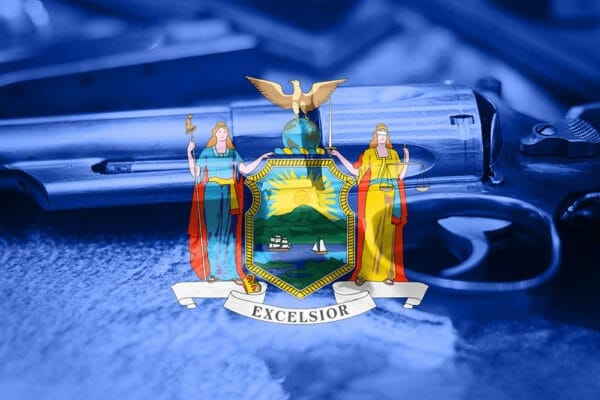
In 2018, Joseph Srour applied for a license to possess rifles and shotguns at his home in New York City. He was denied. In 2019, he applied for a license to possess handguns in his home. He was denied. The denials involved the application of the issuing authorities’ subjective judgment on Srour’s moral character and the subjective judgment of the issuing authorities’ determination of “good cause.” Joseph Srour appealed the decision. After the Bruen decision by the Supreme Court, he amended his appeal to a direct (facial) challenge of the constitutionality of New York City law. The Case is known as Srour v New York City.
On October 24, 2023, United States District Judge John P. Cronan wrote an opinion and ordered New York City and the NYPD Police Commissioner not to enforce current New York City code 10-303(a)(2) and 10-303(a)(9). Those two provisions of the New York City code are as follows:
(a)Requirements. No person shall be denied a permit to purchase and possess a rifle or shotgun unless the applicant:
(2) is not of good moral character; or
(9) unless good cause exists for the denial of the permit.
Judge P. Cronan states the “good moral character” and “good cause” provisions are too subjective to be allowed as barriers to the exercise of Second Amendment rights. From the Opinion and Order:
This case is not about the ability of a state or municipality to impose appropriate and constitutionally valid regulations governing the issuance of firearm licenses and permits. The constitutional infirmities identified herein lie not in the City’s decision to impose requirements for the possession of handguns, rifles, and shotguns. Rather, the provisions fail to pass constitutional muster because of the magnitude of discretion afforded to City officials in denying an individual their constitutional right to keep and bear firearms, and because of Defendants’ failure to show that such unabridged discretion has any grounding in our Nation’s historical tradition of firearm regulation.
“Discretion” is the ability of men to apply the law as they desire, rather than equally and impartially to all. There is always some ability for discretion. It is the amount of discretion that can be pernicious. Most discretion has traditionally been in the ability not to enforce a law rather than the ability to deny constitutional rights.
Another part of New York City law, challenged by Joseph Srour, is Administrative Code Section 10-310. This part of the code does not address the issuance of firearms permits. It provides for penalties for violations of the code’s provisions. Judge Cronan did not strike down Section 10-310. In his conclusion, Judge Cronan writes:
For the previously stated reasons, the Court grants Srour’s motion for summary judgment in part and denies it in part. The Court grants summary judgment in favor of Srour on his First, Second, and Third Causes of Action as facial challenges, and dismisses without prejudice any as-applied challenges brought in those Causes of Action. The Court denies Srour’s motion for summary judgment with respect to his facial challenge in the Fourth Cause of Action, and dismisses without prejudice the as-applied challenge brought in that Cause of Action. The Court also dismisses the Fifth Cause of Action without prejudice. In reaching this holding, the Court finds that Srour is entitled to a declaration that subsections (a)(2) and (a)(9) of New York City Administrative Code Section 10-303 are facially unconstitutional. The Court further determines 48 that Srour is entitled to injunctive relief enjoining the enforcement of subsections (a)(2) and (a)(9) of Section 10-303. The stay will remain in effect under midnight on October 26, 2023.
New York City is appealing Judge Cronan’s decision to the Second Circuit Court of Appeals. The Second Circuit has been near as hostile to the Second Amendment as the Ninth Circuit Court of Appeals. Judge Cronan’s decision is well-written and clear.
About Dean Weingarten:
Dean Weingarten has been a peace officer, a military officer, was on the University of Wisconsin Pistol Team for four years, and was first certified to teach firearms safety in 1973. He taught the Arizona concealed carry course for fifteen years until the goal of Constitutional Carry was attained. He has degrees in meteorology and mining engineering, and retired from the Department of Defense after a 30 year career in Army Research, Development, Testing, and Evaluation.

from https://ift.tt/vuH9wXZ
via IFTTT

No comments:
Post a Comment